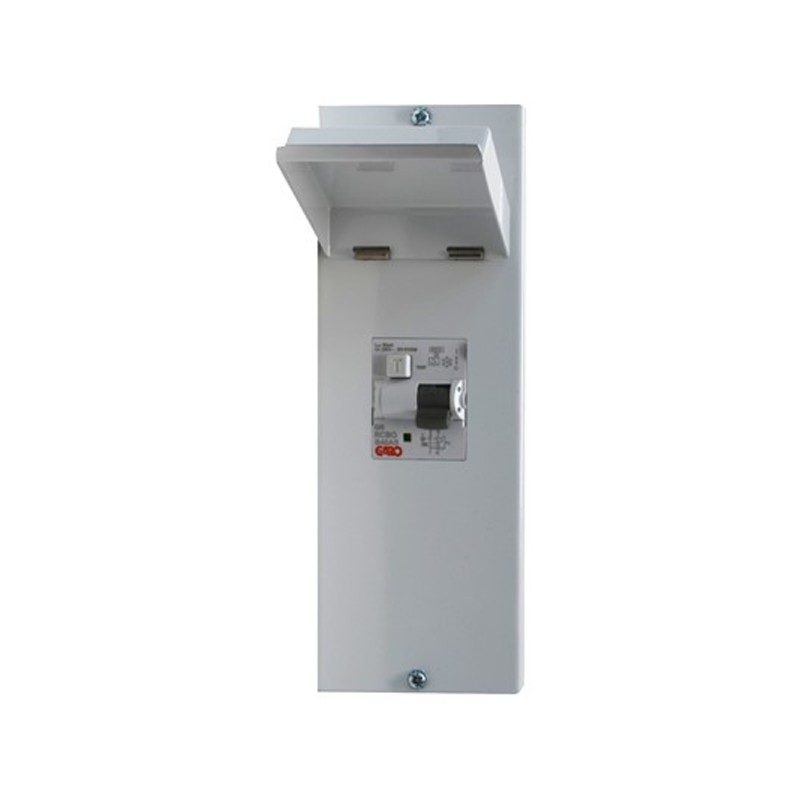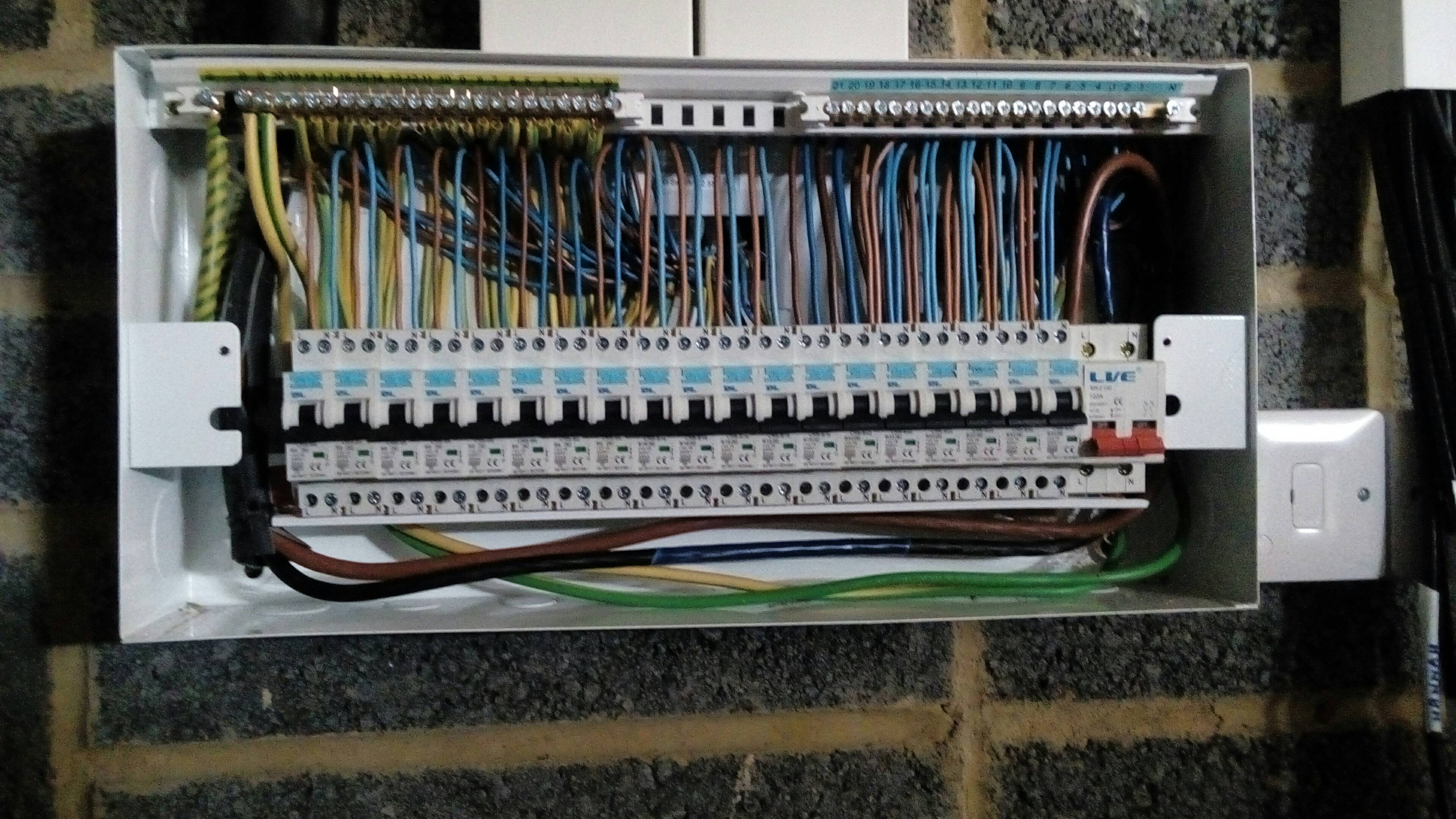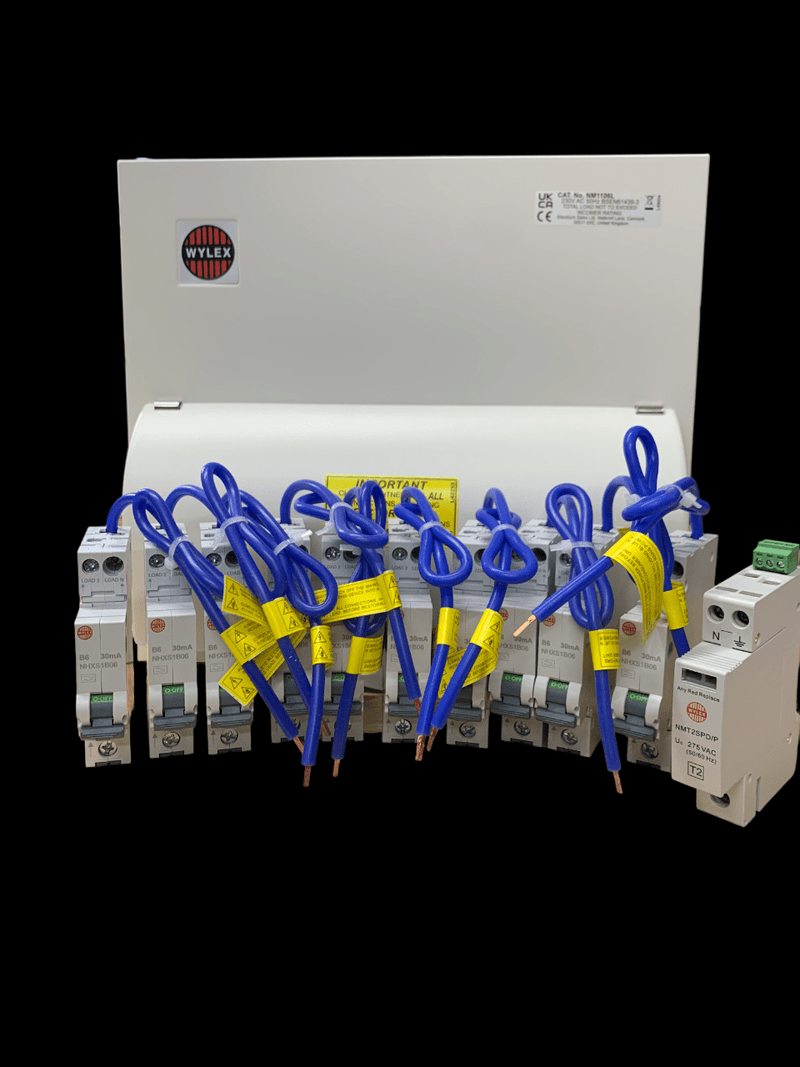A Comprehensive Guide to Keeping Your RCBO CONSUMER UNITS Effectively
A Comprehensive Guide to Keeping Your RCBO CONSUMER UNITS Effectively
Blog Article
The Duty of Consumer Systems in Reliable Energy Management Solution
Customer units are integral to efficient power management systems, serving as the primary circulation factors for electrical power within structures. The introduction of smart technologies has actually even more improved their capability, allowing for real-time information tracking and nuanced power intake evaluation.
Recognizing Consumer Systems

Recognizing the role of consumer systems begins with recognizing their crucial function in protecting electrical systems. By separating mistakes within particular circuits, consumer systems protect against widespread interruptions and prospective fire threats. This seclusion is achieved with the usage of breaker that journey or integrates that impact when a fault is discovered, thereby removing the electric circulation to the influenced circuit.
Furthermore, customer units promote the orderly circulation of power, improving the effectiveness of power use. They enable the organized management of electrical loads, which can be particularly crucial in industrial and commercial setups where need can rise and fall considerably. Effectively conserved customer devices add to the durability of electric systems and aid in reducing downtime triggered by electrical failures, ultimately supporting the smooth operation of energy-dependent centers.
Smart Technologies Combination

A vital advantage of smart consumer devices is their capacity to utilize advanced algorithms and artificial intelligence for predictive analytics. This enables preemptive modifications based upon usage patterns, weather report, and other variables, significantly increasing general efficiency. Clever customer systems facilitate need reaction programs, where energy use can be dynamically readjusted during peak durations to maintain the grid and reduce expenses.
The assimilation of eco-friendly energy resources, such as solar and wind, is likewise structured via wise consumer systems. By smartly handling the intermittency of these resources, these units guarantee a reputable and well balanced energy supply. Additionally, smart consumer units enhance user interaction by offering in-depth understandings and remote capacities through mobile applications, promoting a more proactive method to power preservation and sustainability.
Monitoring Energy Intake
Structure on the abilities of wise modern technologies integration, keeping an eye on energy consumption ends up being a crucial emphasis within power administration systems. By leveraging advanced metering infrastructure (AMI), real-time information on power usage can be accumulated at granular degrees, offering beneficial understandings right site link into consumption patterns and peak need periods.
Smart meters and Web of Things (IoT) tools play a crucial role in this tracking procedure. These devices can track energy usage in real-time, sending information to centralized systems for evaluation.
The integration of these innovations not just empowers consumers with detailed info regarding their energy usage but likewise supports utility carriers in handling lots circulation a lot more successfully. Ultimately, accurate and continuous surveillance is essential for achieving power effectiveness, expense savings, and sustainability goals within energy management systems.
Optimizing Appliance Usage

One effective technique entails identifying optimal and off-peak hours to change energy-intensive tasks, such as washing or dishwashing, to times when energy demand is lower. This not just decreases stress on the grid yet additionally profits from lower energy tariffs. Additionally, incorporating artificial intelligence formulas permits for predictive upkeep, guaranteeing devices weblink operate at optimum effectiveness and prolonging their life-span.
Energy management systems can also include user-specific choices and behaviors to customize appliance use schedules. Wise lighting systems can change illumination based on tenancy and natural light accessibility, while Heating and cooling systems can maintain comfort levels without excessive power use.
Promoting Sustainability
Promoting sustainability within energy administration systems involves not just boosting efficiency but likewise promoting eco accountable practices. Customer systems are integral to this procedure, as they provide real-time information and control mechanisms that enable individuals to keep an eye on and reduce their energy usage. By leveraging sophisticated modern technologies, customer units can recognize energy-saving opportunities and facilitate the combination of sustainable power resources like solar and wind power.
One crucial element of promoting sustainability is educating consumers on the advantages of responsible energy usage. Via thorough insights given by consumer systems, customers can make enlightened choices that lessen their carbon footprint. These units can recommend optimal times for operating high-energy appliances based on grid demand and renewable energy availability, thereby decreasing dependence on fossil gas.
Furthermore, customer units sustain the adoption of clever grid innovations, which enhance the total performance and integrity of energy distribution. By making it possible for two-way communication between customers and energy suppliers, these systems can dynamically change to power needs, minimizing waste and promoting the usage of lasting power practices.
Conclusion
Customer units, as essential elements of energy management systems, significantly improve electrical security and efficiency within buildings via circuit defense and wise innovation integration. Real-time information tracking and analysis facilitated by these units maximize energy consumption and device usage. In addition, the unification of renewable resource resources promotes lasting methods, contributing to reduced total power usage and lower carbon impacts. Consequently, consumer systems play an essential duty ahead of time both power effectiveness and ecological sustainability.
Advances in clever technologies have reinvented the capabilities of power management systems, particularly through the combination of clever consumer units.Building on the capabilities of wise technologies combination, monitoring energy consumption becomes a crucial focus within energy administration systems.Effective home appliance use optimization is an essential part of power management systems, aiming to enhance performance and reduce unneeded energy useful source consumption.Customer devices, as integral elements of power administration systems, dramatically improve electric safety and performance within structures via circuit security and clever technology integration. In addition, the unification of eco-friendly energy resources advertises sustainable practices, adding to lowered total energy consumption and reduced carbon footprints.
Report this page